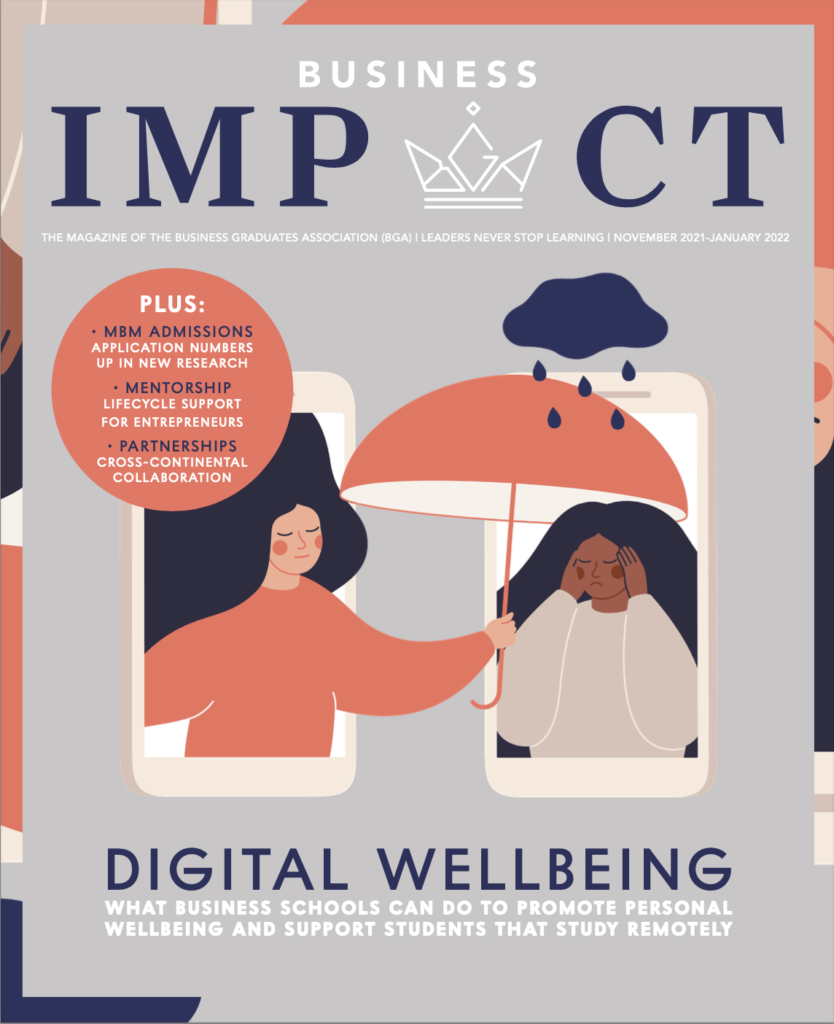What is reverse mentoring and how can it help your organisation?


Reverse mentoring turns the traditional mentoring paradigm on its head.
Unlike traditional mentoring programmes, where a senior leader mentors a younger, less experienced employee, reverse mentoring is when a senior leader is mentored by a person from an under-represented background.
This background can be in relation to gender, age, ethnicity or disability, for example. Senior leaders become the novices and lean into their growth mindset to understand their biases and drive change.
Such a transformative experience not only enlightens the leaders, but also serves as a catalyst for organisational change, particularly in the realms of equity and inclusion.
In busy corporate life, leaders may inadvertently focus solely on the tangibles, such as profits and results. However, this narrow lens can obscure the less visible, yet equally critical, aspects of workplace dynamics. It’s only when employee turnover rises that the true cost of such oversight becomes apparent. Strategic change to ongoing, authentic engagement can staunch the flow and reinforce the foundations of a thriving corporate culture.
Reverse mentoring is particularly effective in pre-empting the kind of cultural erosion outlined above. By fostering direct dialogue between leadership and frontline employees, it uncovers the hidden pressures and challenges that often go unnoticed in the upper echelons of management. It invites leaders to step into the shoes of their teams and view the world through a fresh and invariably enlightening perspective.
Fostering inclusive cultures to address attrition
In one organisation, the attrition rate among Generation Z employees had reached a troubling 30 per cent – these individuals were all choosing to leave within their first six months of employment. During exit interviews, a poignant reason emerged for those who opted to voice their concerns: a feeling of disenfranchisement and a sense that their contributions were not being acknowledged, creating a pervasive feeling of not belonging within the organisation’s community.
In response to this unsettling trend, one company leader – drawn to action by his understanding of Gen Z through his own children – initiated a candid dialogue with one of the departing individuals. Over a coffee, he delved into the specific experiences of this younger cohort and the changes that could be made to better retain these recently onboarded talents. Aware that diversity in numbers does not inherently translate to an inclusive culture, he also recognised the insufficiency of a mere HR report to truly grasp the situation – personal insights were crucial.
From this initiative, the leader learned of practical ways to foster inclusiveness: inviting more frequent input; ensuring regular communication; increasing the leader’s own visibility in the office; and organising coffee mornings to encourage discussion and informal interaction. Such seemingly minor measures, even extending to the placement of snacks in common areas to promote social interaction, were in fact significant and economically viable strategies that could be quickly implemented.
Further galvanised by his initial and eye-opening interaction, the leader established a monthly ‘feedback session’. Attendance was sparse at first, but once it became clear that these were not just talk shops but forums for real change, participation surged. The sessions transformed into vibrant hubs of discussion, humour and, crucially, a birthplace for substantive business decisions.
Practice what you preach
This narrative emphasises how simple, yet thoughtful, leadership interventions that are underpinned by genuine conversations can create an inclusive environment that not only retains talent but also empowers it to actively shape an organisation’s future.
The broader impact on work culture is profound. Engaged employees, trust in leadership and a pervasive sense of belonging all ensue from such initiatives. This is not just about improving metrics, it’s also about fostering a community within the workplace where inclusivity is practiced, rather than merely preached.
Empowerment and innovation are natural byproducts of such a culture. Employees who feel heard are more likely to contribute openly, leading to a more agile and inventive organisation. Challenges are better addressed from within, transforming potential internal crises into opportunities for growth and learning.
Reverse mentoring, therefore, is more than a mere exercise in diversity – it is a strategic imperative for enlightened leadership. It prepares organisations to weather the storms of change and sail ahead, with every member at the helm, charting a course towards a more equitable, engaged and successful future.

Patrice Gordon is the founder of Eminere, which provides reverse mentoring and inclusive leadership programmes, executive coaching and strategic business development. She is also the author of Reverse Mentoring: Removing Barriers and Building Belonging in the Workplace
Read more Business Impact articles related to sustainability:

How the energy transition stands to benefit business
The shift to renewable energy is the way the wind is blowing and business leaders must respond to these shifts, says Ruggero Gramatica from the University of Oxford’s Institute for New Economic Thinking

Companies may be ‘gaming’ their reported emissions, study suggests
Organisations can effectively ‘game’ their CO2e results by using the dataset that gives them the most suitable results, according to research from King’s Business School. Ellen Buchan reports

Why upskilling on sustainability must begin with faculty
Iéseg School of Management’s Maria Castillo outlines why the school is training its faculty in sustainability and how it offers students spaces to engage further in the subject. Interview by Tim Banerjee Dhoul
Want your business school to feature in
Business Impact?
For questions about editorial opportunities, please contact:
Tim Banerjee Dhoul
Content Editor
Business Impact


















